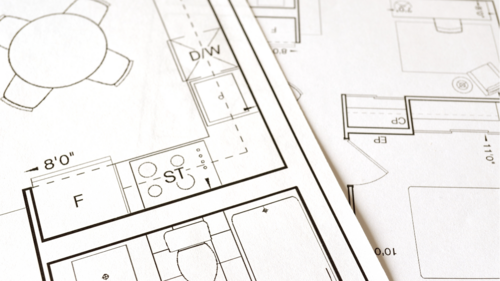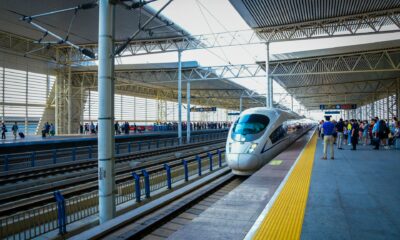News
Declining Home Construction in Joburg Surges in Tshwane and Ekurhuleni

The City of Johannesburg is facing a concerning decline in new property construction, a trend that sets it apart as the only major metropolitan area in South Africa experiencing this downward trajectory. In contrast, Tshwane and Ekurhuleni, the other two primary metros in Gauteng, are witnessing a notable increase in residential building activity as reported by IOL.
Also Read: Students Gain Empowerment Through Solar Power Education
Remarkably, all major cities across South Africa have experienced a resurgence in building activity following the initial slowdown caused by the COVID-19 pandemic, with eThekwini and Nelson Mandela Bay demonstrating particularly impressive rebounds.
Within the Western Cape, the City of Cape Town historically held the lion’s share of building plans passed in the province. However, this share has been steadily diminishing since 2017, dropping from over 72 percent to just 44.3 percent of the total Western Cape plans passed by the last year. Dr Andrew Golding, CEO of the Pam Golding Property group, highlights this trend, emphasising that it is unique to Johannesburg, where the number of plans continues to decline. Notably, Nelson Mandela Bay and eThekwini have not only recovered but have surpassed their pre-COVID levels in terms of plans passed.
The situation is similar when considering the value of plans passed. Nelson Mandela Bay and eThekwini have rebounded beyond their 2019 levels, while the other metros, except for Johannesburg, have also recovered, albeit not yet reaching their pre-COVID levels.
Interestingly, in 2022, the value of building plans passed in Tshwane exceeded that of Cape Town, indicating a shift of building activity from the metro market to areas outside, such as the Boland, Overberg, and Garden Route in the Western Cape. In Gauteng, the rebound in building plans passed in Tshwane has been partially offset by a decline in the value of plans elsewhere, particularly in Johannesburg.
In Gauteng, all three major metros experienced a decline in the value of building plans passed during the COVID-19 pandemic. However, Tshwane rebounded strongly, with values in 2020 and 2021 surpassing those of 2019, possibly due to higher construction costs. Ekurhuleni also experienced a rebound, with 2021 and 2022 values reaching their highest levels in a decade.
Dr Golding notes that Tshwane consistently held the highest value of building plans passed among Gauteng’s major metros, suggesting the construction of more expensive homes in this area. In Ekurhuleni, Benoni saw significant building activity between 2015 and 2020 but experienced a sharp slowdown post-COVID. In contrast, Kempton Park and Boksburg fully recovered post-pandemic and maintained consistent levels of activity.
Furthermore, when tracking the value of building plans passed in Ekurhuleni, Kempton Park emerged as the dominant metro, experiencing robust post-COVID recovery. Boksburg showed a steady increase in the value of plans passed. In contrast, Benoni’s surge in the number of plans passed did not translate into a proportionate increase in the value of plans, possibly due to a focus on more affordable housing.
Regarding overall industry sentiment, the building sector experienced a dip in the second quarter of 2023, with the FNB/BER Building Confidence Index dropping to 28. However, in the third quarter, it rebounded by six points to reach a level of 34. Despite this improvement, over 65% of respondents remain dissatisfied with current business conditions.
Several key segments within the building sector exhibited changes in confidence levels, including positive gains for building material manufacturers, quantity surveyors, architects, and building sub-contractors. At the same time, main contractors and hardware retailers reported slight declines.
The core building confidence index, which excludes building material manufacturers and hardware retailers, rose to 39 in the third quarter, marking the highest level since the second quarter of 2018.
Notably, non-residential builders, encompassing main and sub-contractors, saw a significant increase in sentiment, jumping from 42 in the second quarter to 52 in the third quarter. This improvement was driven by ongoing activity growth and increased profitability in the non-residential property market. Several factors contributed to this resurgence, such as retrofitting office space post-COVID, firms relocating to the Western Cape, and low technical base effects.
Residential building activity also improved, though business confidence declined to its lowest point in the year. The rating of the lack of new demand as a business constraint, which serves as a proxy for order books, remains elevated. This suggests that, apart from specific regions, especially in the Western Cape, the residential property sector is grappling with weak demand due to restrictive monetary policies. Consequently, while existing work exists, the appetite for new residential construction is diminishing.
Also Read:
Follow us on Google News
Photo by Pixabay






















